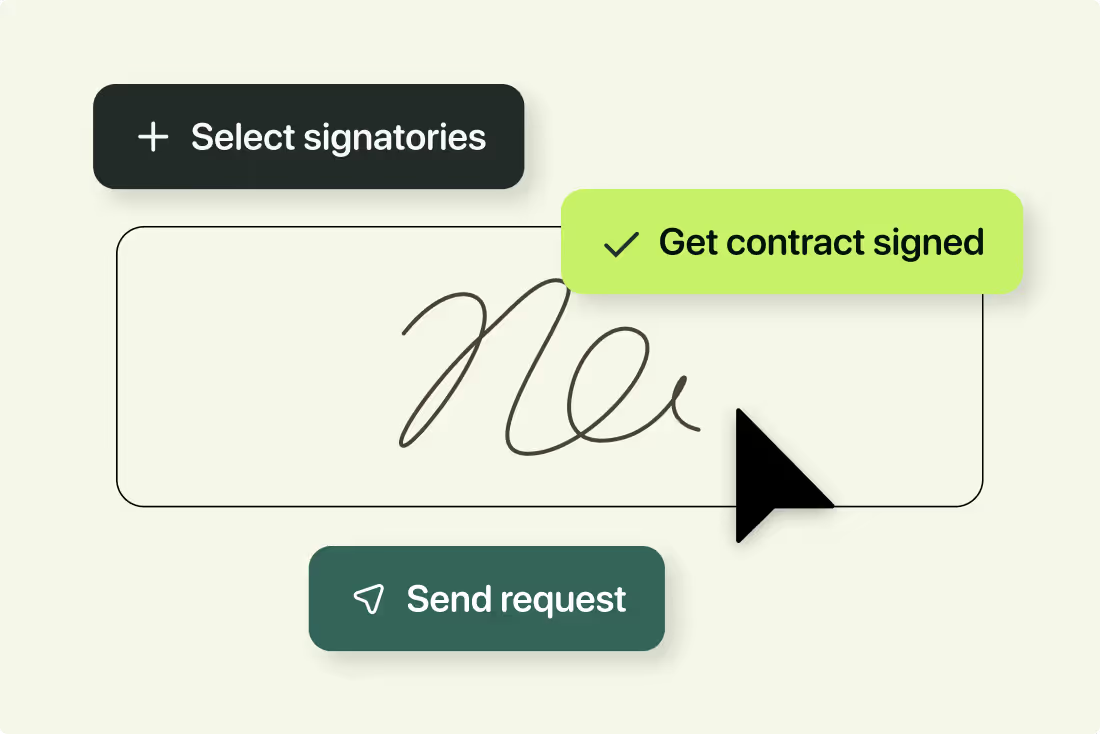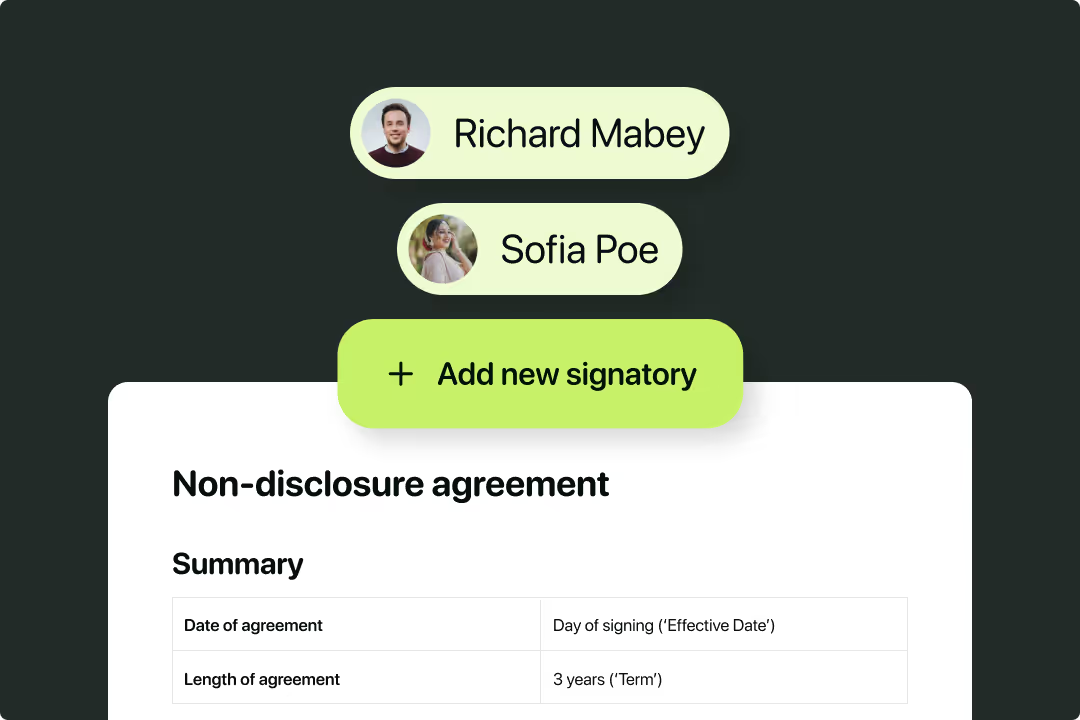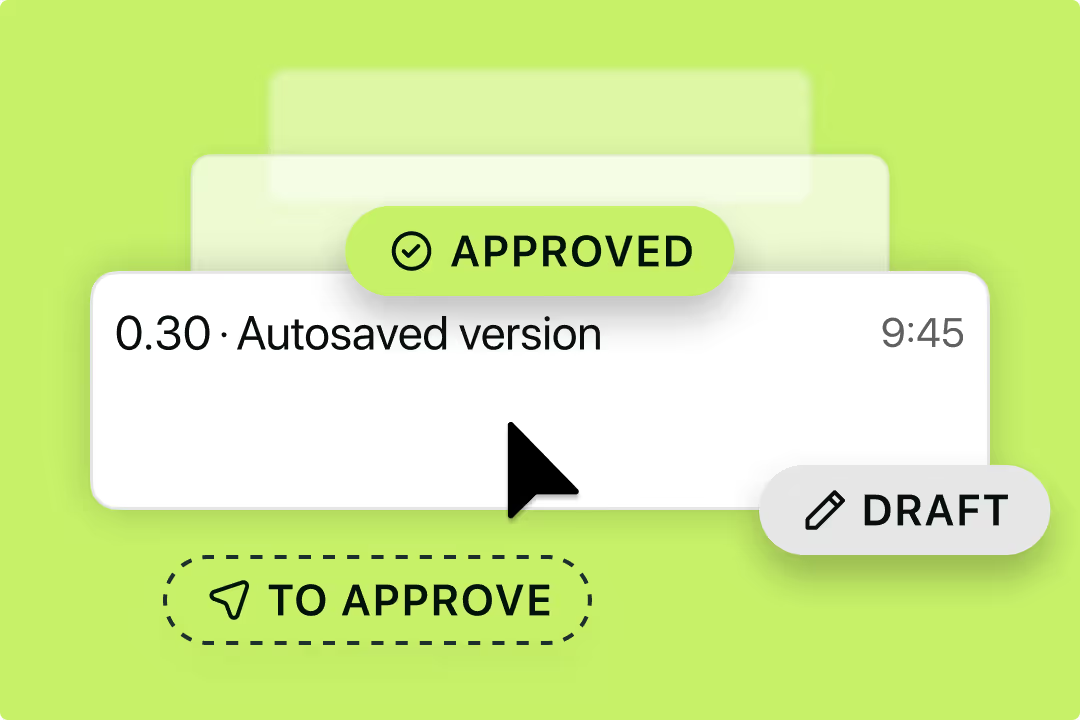Solutions
Customer Support
Resources
Signing contracts electronically has become the new normal in the US. After all, it offers businesses a fast and efficient way to get deals done.
But it hasn’t always been this way.
Before the UETA and the ESIGN Act, lots of businesses were sceptical about the use of electronic signatures. In some states, they weren’t viewed as valid, unlike wet ink signatures.
This post takes a closer look at the two legal frameworks that confirmed the validity of eSignatures in the US: the UETA and the ESIGN Act.
Electronic signatures are viewed as legally valid and binding in the US, with laws such as the UETA and the ESIGN Act confirming this fact.
But what exactly do these two laws say about eSignatures, and what rules should you follow as a business in the US? Read on to find out.
Traditionally, contracts were signed in person. This meant using wet ink signatures and physical paperwork to get deals done.
However, with the internet becoming increasingly popular in the late 1990s, businesses soon wanted to finalize deals remotely and across borders. To make this possible, various US states started creating laws that recognized electronic signatures as legally valid.
The problem was that these state laws were inconsistent with one another, and some states didn’t permit eSignatures at all.
Since then, the US has seen a far more unified approach to eSigning, with both the Uniform Electronic Transaction Act (UETA) and the Electronic Signatures in Global and National Commerce Act (ESIGN Act) coming into effect.

Let’s discuss each of these two laws in a bit more detail now, starting with the UETA.
The Uniform Electronic Transactions Act (UETA) is an act that recognizes electronic signatures as equivalent to handwritten, wet ink signatures.
In other words, the UETA established that electronic signatures would carry the same legal weight as handwritten signatures do. That is, as long as certain conditions are met.
The UETA was proposed by the Uniform Law Commission (ULC) and passed in 1999. The UETA was first adopted by California, but plenty of other states soon followed suit. In fact, almost all US states currently use UETA as a legal framework, except New York and Illinois.
The ESIGN Act is a federal law that regulates the use of electronic signatures right across the United States.
The ESIGN Act, which was passed in 2000, confirmed once again that electronic signatures could be deemed valid and enforceable in the US, so long as certain conditions are met.
The purpose of the ESIGN Act was to encourage cross-border transactions by making it possible to sign contracts electronically. It was also created to make electronic signature laws more consistent across the US.
Both UETA and ESIGN discuss the legal validity of electronic signatures. But there are also a few important differences between the two legal frameworks. Let’s discuss that next.
The main difference between the EUTA and the ESIGN Act is that the UETA provides guidance at a state level. Meanwhile, the ESIGN Act is a federal law, so the rules within it apply right throughout the United States.
In other words, individual states can decide whether to opt in to the UETA, but the ESIGN Act automatically applies to those that do business online in all US states.
Another important difference between the UETA and the ESIGN Act is that they govern different transactions. For example, the ESIGN Act provides guidelines for foreign and interstate transactions. Meanwhile, the UETA applies to business transactions, commercial contracts, and government affairs.
Despite these differences, the UETA and ESIGN Act both provide a similar perspective and set of rules surrounding the validity of electronic signatures. Let’s run through exactly what these US laws say next.
Put simply, both the UETA and the ESIGN Act say that an electronic signature can be used to sign agreements in the same way that a handwritten signature can. This means that a contract can’t be denied validity just because it’s signed electronically rather than by putting pen to paper.

However, the UETA and the ESIGN Act both have four important criteria that an electronic signature must meet before this is the case. Let’s go through these four requirements now.
It sounds obvious, but an eSignature will only be deemed valid if the signatory had the intention to sign it. This intent should be clear, just like with a handwritten signature.
This is because signatures are understood as a form of contractual acceptance, which is one of the main requirements of a contract.
Interestingly, this can include checking a box that says “I agree”, or “Place order”. But it could mean adding an image of a scanned signature to a contract or creating a signature using a tool like DocuSign or Adobe Sign. It’s even possible to vocally express your acceptance of certain terms using a voice recording (voice signature).
Under the UETA and the ESIGN Act, all parties must have agreed to do business electronically. This is also called “consumer disclosure”.
Under the UETA, the parties must have agreed to go ahead with a transaction in an electronic format. This can be made clear either through the context of a situation, their express consent, or their conduct.
The ESIGN Act also says that businesses must be able to confirm that the signatory has agreed to do business electronically. But it also goes a step further and says that parties should also be made aware of all of their rights and options when doing so, including the right to request a paper record or contract instead.
The next requirement relates to record-keeping. Put simply, the ESIGN Act and the UETA both require accurate and effective records of the eSignature being created.
These records must demonstrate that the signature created is linked or logically associated with both the contract and the signer. This is also known as attribution.
The signature must be attributable to a person. This is where audit trails come in handy since they capture a signer’s details, IP address, and location. Features that authenticate the singer are also beneficial in proving this.
There also needs to be some sort of proof about the process used to create the eSignature. For example, the system used to capture the transaction must also record exactly when and how the signature was created.
All of this information helps to prove that the person signing the agreement is actually the authorized signatory. It also helps to prove that they signed the document in the first place.
Finally, both the UETA and the ESIGN Act express the need for records of eSignatures to be easy to retain and reproduce. In other words, all parties should be able to access the records and retain them.
It’s worth noting that there are some exceptions to the rule in the UETA and the ESIGN Act that electronic signatures are legally valid. This is because certain types of legal documents don’t fall under the scope of the two laws and typically need to have a wet ink signature instead.
Examples of these documents include wills, adoption paperwork, court orders, and divorce agreements, among other things.
However, this post is not legal advice, so if you’re not sure whether or not a document can be signed electronically, it’s worth getting in touch with a lawyer or attorney.
To recap: the ESIGN Act will apply to all US states, while the UETA only applies to the states that have chosen to adopt it. This means that both the UETA and the ESIGN Act operate alongside one another in many states.
Luckily, this isn’t a problem for the most part since both the UETA and the ESIGN Act set out the same four rules on when an electronic signature will be valid.
But, if there are any inconsistencies between the two laws, it’s usually the state law that applies. Although, this will only be the case if the state law continues to recognize electronic signatures and digital contracts as equivalent to physical ones.

Juro’s native electronic signature is fully compliant with the UETA and ESIGN Acts, making it a great option for businesses that want to sign contracts electronically.
Juro’s native eSignature feature gives users access to:
Juro’s native eSignature functionality also empowers users to sign contracts from anywhere, using any device. To find out more about Juro, fill in the form below.

Lorem ipsum dolor sit amet, consectetur adipiscing elit. Suspendisse varius enim in eros elementum tristique. Duis cursus, mi quis viverra ornare, eros dolor interdum nulla, ut commodo diam libero vitae erat. Aenean faucibus nibh et justo cursus id rutrum lorem imperdiet. Nunc ut sem vitae risus tristique posuere.

